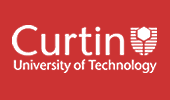
309456 v.1 Master of Enterprise and TechnologyMEntrprsTech(Curtin) This course is not available to International Onshore Students on Student Visas IntroductionThe course educates practicing engineers and scientists in enterprise and business skills. Enterprise has been described as a way of thinking, reasoning and acting that is opportunity driven, holistic in nature and leadership balanced. An individual takes responsibility to pursue and deliver value from an opportunity without regard for resources controlled currently. That individual is in control and responsible for the outcomes. The road from concept to commercial product is complex and entrepreneurs require many skills, including judgement of when and whom to seek input from, and when to act on intuition. World wide there is a shortage of engineers and scientists who can address problems and deliver innovative and creative solutions in a commercial environment. Engineers and scientists obtain quantitative and professional skills through their existing education. The course teaches basic business and enterprise skills. Secondly, to develop the qualitative side - the creative, imaginative, interpersonal and social skills that are essential in successful business ventures. Thirdly, quantitative and qualitative skills are combined into a coherent framework which delivers entrepreneurial practice in the commercial environment. Course Entry Requirements/PrerequisitesEntry is with a bachelor degree in an engineering, science or technology subject at honours level or Postgraduate Diploma in Enterprise and Technology and two years minimum relevant business/industry experience. Recognition of Prior LearningApplications for recognition of prior learning are assessed on an individual basis. A student may, under specific circumstances, receive a waiver for basic units. In this case the student must substitute an alternative unit approved by the course coordinator. Equivalent units from other institutions may be acceptable if approved by the course coordinator. Duration and AvailabilityThe course is three semesters full-time study. Intermediate Awards IA student who has successfully completed the requirements of an approved intermediate award, may apply for graduation in that award subject to approval of the Head of School/Department. Fees apply. Intermediate awards approved for this course appear below. Intermediate Awards IIGraduate Certificate in Enterprise and Technology, Postgraduate Diploma in Enterprise and Technology Course OrganisationSem one introduces basic business and commercial concepts and skills to engineers and scientists. The focus of the course is on those basic business skills that are central to SET commercial ventures, with a strong emphasis on practical entrepreneurial application. Key topics include legal marketing and financial basics in a SET environment, strategy and its implementation, risk evaluation, organisational dynamics, interpersonal skills, business plans and how to start a business. Sem two introduces approaches to both incremental and radical innovation. Creativity is developed in terms of thinking skills, knowledge and motivation. The techniques developed include creative thinking, critical thinking, dialectic argumentation, and Ba (a Japanese management concept). A systems approach is adopted and risk is addressed within a framework focused on uncertainty. Project work provides practical experience. Sem three integrates the various innovative, creative, business and SET skills. The focus is on the development of entrepreneurial plans, initiating entrepreneurial ventures, and the growth and development of enterprises. Concepts such as change processes, marketing and enterprise finance are developed. Project work provides practical experience. Career OpportunitiesEnterprise is the driving force of most economies, particularly Australia. World wide there is a shortage of engineers and scientists who can address problems and deliver innovative and creative solutions in a commercial environment. Graduates will have acquired the skills to set up and run entrepreneurial business ventures in the science, engineering and technology areas, or to lead new ventures in larger organisations (enterprise). Additional Course ExpensesStudents may be expected to purchase a number of textbooks, readers and other vital study materials. Special NoteThe second and third semesters of the course are under construction with information progressively becoming available during 2005. Prospective students should consult the course coordinator to determine the appropriate unit progression.
Availability
The information displayed above refers to study periods and locations where the course is available for first time entry. Students are normally only offered or admitted to a course once. *The course itself may not be available either solely internally or externally but individual units may be offered in either or both of those modes. Prospective students should contact the Course Coordinator for further information. ^Course and associated units are offered in this mode permitting International Onshore student enrolment. #Course and associated units are offered in this online only mode and DO NOT permit International Onshore student enrolment. Click here for a printable version of this page |
 |
|||||||||||||||||||||||||||||||||||||||||||||||||||||||||||||||||||||||||||||||||||||||||||||||||||||||||||||||||||||||